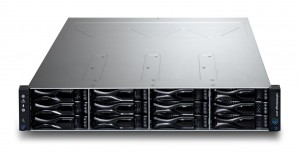Have a failed RAID array?
Not a problem, Recovery Force is not only fast with recovering data from a failed RAID array, our prices may be the best in the industry.
We have recovered data from pretty much every possible hardware and software RAID configuration:
- RAID 0, RAID 1, RAID 10, RAID 5, RAID 50, RAID 6 and JBOD.
- Adaptec, LSI, HiPoint, HP, Intel, 3ware
- Acer, Apple, Compaq, Dell, HP, Lenovo, EMC
- Buffalo, D-Link, Drobo, Iomega, LaCie, Netgear, QNAP, Seagate, Synology, Thecus, Western Digital
- Apple SoftRAID, Linux LVM, Windows Dynamic Disk, FreeNAS
When encountering a failed RAID, the first steps taken are critical when it comes to the outcome of the recovery. The two main reasons that Recovery Force Inc is unable to recover data from RAIDs are because the physical failure is too severe for anyone to recover and the second reason is because of the damage caused by the previous attempts made to recover the data by rebuilding the array.
If you are confronted with a failing or failed RAID array, you are encouraged to call Recovery Force Inc at our toll free number, 866-750-3169, and talk to one of our data recovery team members right away. We will advise you on the best course of action that will help ensure that no further damage is caused to the critical data stored on the array.
RAID Data Recovery Prices Start at $700.
Common failed RAID scenarios we see:
- Multiple disk failure
- RAID controller failure
- Misreported disk failure
EMC RAID Data Recovery
EMC is known for having some of the most advanced storage solutions in the market. Between their data deduplication solutions and their proprietary RAID storage hardware, they make every effort to prevent data loss. However, even the best storage solutions can and...
RAID 1 Fatal Crash
When working with redundant disk drives in a RAID array, it is very important to frequently backup the data. We just assessed a setup where the data stored on one drive is mirrored to the other in real time (RAID 1). In this particular case, the second drive failed...
RAID-0 (Striping) Data Recovery
Ever wonder it means to have a RAID-0 hard drive configuration? No, it is not a hard drive that kills bugs dead. RAID-0 is also known as striping and splits the data equally across two or more hard drives. The reason people choose RAID-0 is for the increased hard...